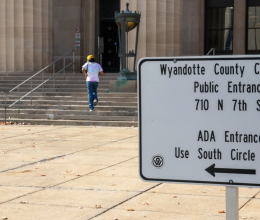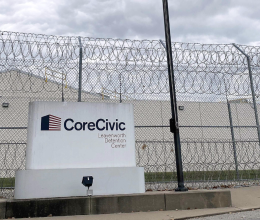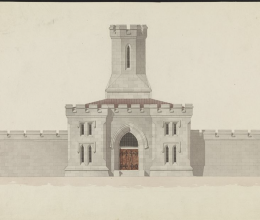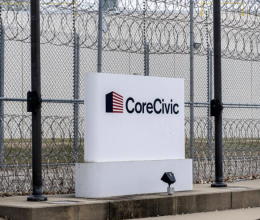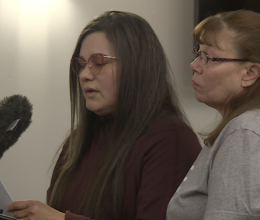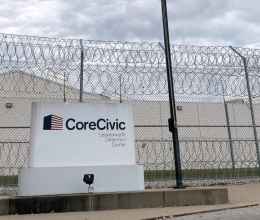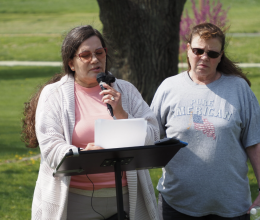
Proponent Testimony for HB 2366 - Requiring prosecutors to disclose their intent to introduce testimony from a jailhouse witness
Aileen Berquist, Community Engagement Manager,
American Civil Liberties Union of Kansas
Senate Judiciary Committee
Wednesday, February 2 at 10:30 AM – 346 S
Committee Chairs and Members of the Committee,
Thank you for the opportunity to present testimony today. My name is Aileen Berquist. I am the Community Engagement Manager and lobbyist for the ACLU of Kansas. We are a nonpartisan, non-profit organization that works to preserve and strengthen the civil rights and liberties of every person in our state.
Unreliable testimony from so-called “jailhouse informants” is a key component of wrongful convictions and a contributing factor to systemic inequality in our criminal legal system. There is a well-documented history of misleading or false information provided by jailhouse witnesses who receive benefits like a shortened sentence, reduced charges, special inmate privileges, and even money in exchange for their testimony.1 And, to protect these informants, the current system makes it very hard to cross-examine these witnesses. Crucial information, such as the benefits the witness received from testifying, the witness’s criminal history, and their previous history as a jailhouse informant, is guarded by prosecutors.2 This system perpetuates unjust, wrongful convictions of innocent people.
There are many well known cases that show the harms caused by using jailhouse informant testimony to secure a conviction—we urge you to review the case of Pete Coones, a Kansas man who spent 12 years in prison for a murder he did not commit. By the time he was exonerated, he had mere months on the outside with family before he succumbed to cancer that went undiagnosed and untreated while he was incarcerated.3 Part of his wrongful conviction stemmed from the testimony of a jailhouse witness that other attorneys classified as “not reliable at all.4” The use of these “unreliable” jailhouse witnesses is not uncommon. To summarize, in 367 Innocence Project exonerations, 17% involved jailhouse informants.5 That means jailhouse testimony was a contributing factor in nearly 1 in 5 wrongful convictions.6
On a legal note, the use of jailhouse witnesses often violates what is known as the Brady Rule. Brady violations occur when prosecutors fail to perform their constitutional duty to turn over helpful evidence to the people they have charged with crimes.7 In Brady v Maryland, the Supreme Court ruled that the government's withholding of evidence that is material to the determination of either guilt or punishment of a criminal defendant violates the defendant's constitutional right to due process.8 Brady mandates disclosure of potentially exculpatory evidence, including evidence that a person is receiving some sort of personal benefit in exchange for their testimony.9 Often times, prosecutors abuse their power and fail to disclose the incentives they offered jailhouse informants in exchange for their testimony – incentives which could call into question the veracity of the informants’ testimony. HB 2366 is an important step that would change this reality, by requiring that all pertinent information be shared openly with defense counsel.
We firmly believe in providing transparency and guardrails to ensure that all testimony used as evidence is unbiased and reliable. The ACLU of Kansas strongly supports the measure in HB 2366 to thoroughly vet jailhouse informants. Additional resources on this topic are attached. Thank you for allowing me to present testimony.
Additional Resources
https://innocenceproject.org/safeguarding-against-unreliable-jailhouse-i...
https://innocenceproject.org/informing-injustice/
https://www.pewtrusts.org/~/media/legacy/uploadedfiles/wwwpewtrustsorg/r...
https://www.oyez.org/cases/2003/02-8286
https://www.kansascity.com/news/local/crime/article239945523.html
1The Innocence Project, Safeguarding Against Unreliable Jailhouse Informant Testimony: https://innocenceproject.org/safeguarding-against-unreliable-jailhouse-i...
2See Innocence Project supra, at Note 2.
3https://innocenceproject.org/petitions/kansas-jailhouse-informants/
4https://www.kansascity.com/news/local/crime/article239945523.html
5See The Innocence Project, supra, at Note 2.
6See The Innocence Project, supra, at Note 2.
7Jessica Brand, The Epidemic of Brady Violations: Explained (2018), https://theappeal.org/the-epidemic-of-brady-violations-explained-94a38ad...
8Oyez, Brady v. Maryland, 373 US 83 (1963), https://www.oyez.org/cases/1962/490
9See Oyez, supra, at note 10.

